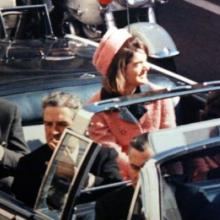Castro
There was something changing — on my more recent visits, people have been publicly talking politics in ways they previously would have done only behind closed doors. Yet with U.S. President-elect Donald Trump now threatening to roll back Obama’s strides in U.S.-Cuba relations, it’s hard to say how many Americans will get to meet this Cuba.
U.S. law stipulates that the U.S. embargo cannot be lifted unless both Castros exit power. Raul Castro says he’ll leave office in 2018. What’s the likelihood of any successor being moderate enough for Trump — or willing to let the real estate mogul near the island’s beachfront property and historic Havana hotels?
IN OAKLAND, CALIF., schools and other nontraditional sites host health clinics that provide both primary care and preventive health services for area residents, many of whom are uninsured.
In south Los Angeles, mental health professionals have created programs based on nutrition and group exercise, along with peer-to-peer education about the transmission of HIV/AIDS. Community groups, faith-based organizations, schools, and health providers are coming together in Albuquerque, N.M., to enroll hundreds of children in Medicaid and start neighborhood walking groups—part of an effort to break down walls between health-care providers and their patients
The U.S. health-care system is known for treating advanced-stage illnesses with expensive therapies that are often not accessible to those without health insurance. So if these low-cost, preventative programs in Oakland, LA, and Albuquerque don’t sound like the typical U.S. approach to health, you’re right: These and other community-based efforts trace their inspiration to the remarkably successful health system built by the nation of Cuba.
Alan Gross, the Jewish international aid worker held on alleged spy charges in Cuba for five years, was freed on Dec. 17 — what some are calling a Hanukkah miracle on the first day of the holiday that celebrates religious freedom.
Gross, 65, of Maryland, has always claimed that he only went to Cuba to bring communications equipment to the small Jewish community left in Havana. However, the Castro government said he was part of a spy network attempting to set up a secret network for Cuban Jews. Gross was serving a 15-year sentence.
President Obama chose the Dec. 17 release as a springboard to announce a massive historic “normalization” of U.S.-Cuba relations. Meantime, in Cuba, President Raul Castro, who held a press conference in Havana at noon, was expected to release 53 Cuban political prisoners.
Obama particularly credited the “moral example of Pope Francis,” who actively encouraged Gross’ release. Francis, who held private meetings at the Vatican to secure the deal, praised the move, sending “his warm congratulations for the historic decision taken by the Governments of the United States of America and Cuba to establish diplomatic relations, with the aim of overcoming, in the interest of the citizens of both countries, the difficulties which have marked their recent history.”
NOVEMBER MARKS the 50th anniversary of the assassination of our 35th president, an event that defined the life of the baby-boomers—a generation that, by sheer force of numbers, still sucks up most of the oxygen in U.S. culture. There are new books, reissued books, documentaries, made-for-TV movies, and a new Hollywood production, Parkland, starring that Everyman of the baby boom, Tom Hanks. But, anniversary hoopla aside, the JFK assassination and its aftermath can also provide us with some very timely lessons about the dangers that come with secret wars and unaccountable power.
Fifty-nine percent of Americans don’t believe the official story that Lee Harvey Oswald alone killed President John F. Kennedy, and this time the majority is right. The available evidence strongly suggests that the president was the victim of a murder plot that involved anti-Castro Cubans, enraged by his failure to back them up during the Bay of Pigs invasion, and their allies in organized crime who had been heavily invested in pre-Castro Havana. That was the conclusion of the House Select Committee on Assassinations in 1978, which also found physical evidence of another shooter at the crime scene.
Of course, the armed anti-Castro forces in Florida were a bought-and-paid-for creation of our CIA, and the CIA was also working with organized crime figures in various plots to assassinate Castro. So it’s no great leap to suspect some complicity in Kennedy’s assassination by CIA employees. Some reasonable people, including peace activist and theologian James W. Douglass in his book JFK and the Unspeakable, have gone further, claiming that the Kennedy assassination was the result of a policy decision, taken at the very highest levels of the national security state, aimed at heading off JFK’s plans to pull out of Vietnam and end the Cold War. This theory relies heavily on National Security Action Memorandum 263, which laid out plans to begin withdrawing troops from Vietnam, and journalist Norman Cousins’ account of back channel diplomacy in the book, The Improbable Triumvirate: John F. Kennedy, Pope John, Nikita Khrushchev.
Pope Benedict XVI’s 3-day visit to Cuba began Monday, when President Raul Castro greeted the pontiff at the airport of Santiago de Cuba. The arrival was fairly quiet, but the evening Mass in Santiago’s plaza was attended by an estimated 200,000 Cubans. The pope's long-awaited visit attracted news coverage from around the world, mostly focusing in the pope’s message.




